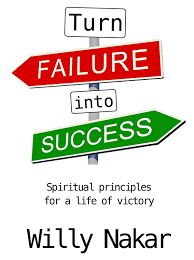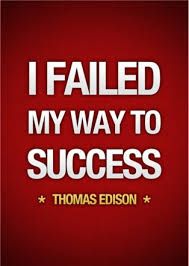First Step Towards Success
May 28, 2019 • 31 views
FAILURE -
Failure is the state or condition of not meeting a desirable or intended objective, and may be viewed as the opposite of success.

The sweetest victory is the one that’s most difficult. When one wants his/her desires to be successful at that time he should have the courage, to fight with everything you’ve got, to be willing to leave everything out there on the battlefield—without knowing, until that do-or-die moment .
The exceptions are those failures that become steppingstones to later success. Such is the case with Thomas Edison, whose most memorable invention was the light bulb, which purportedly took him 1,000 tries before he developed a successful prototype. “How did it feel to fail 1,000 times?” a reporter asked. “I didn’t fail 1,000 times,” Edison responded. “The light bulb was an invention with 1,000 steps.”

Unlike Edison, many of us avoid the prospect of failure. In fact, we’re so focused on not failing that we don’t aim for success, settling instead for a life of mediocrity. When we do make missteps, we gloss over them, selectively editing out the miscalculations or mistakes in our life’s résumé. “Failure is not an option,” NASA flight controller Jerry C. Bostick reportedly stated during the mission to bring the damaged Apollo 13 back to Earth, and that phrase has been etched into the collective memory ever since. To many in our success-driven society, failure isn’t just considered a non-option—it’s deemed a deficiency, says Kathryn Schulz, author of Being Wrong: Adventures in the Margin of Error. “Of all the things we are wrong about, this idea of error might well top the list,” Schulz says. “It is our meta-mistake: We are wrong about what it means to be wrong. Far from being a sign of intellectual inferiority, the capacity to err is crucial to human cognition.”
